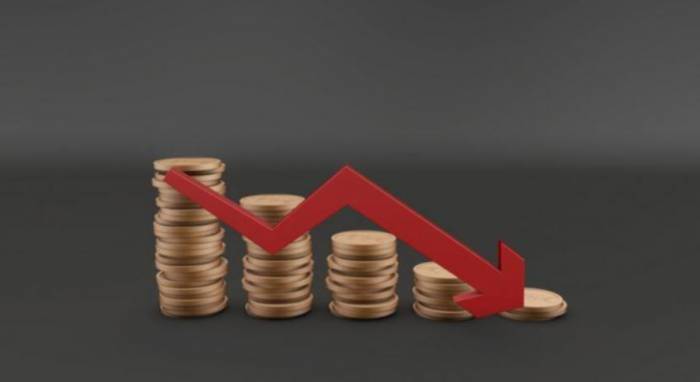① Trading Frenzy Brings Surprise Performance, US Financial Stocks Outperform the Market and Hit New Highs
US financial stocks rose by 1.2% overnight, outperforming the S&P 500 index and closing at a record high. Morgan Stanley's earnings report released before the market opened last night also showed performance exceeding market expectations. Morgan Stanley's stock closed up 6.5%, marking the largest increase in nearly four years, at $119.51, a historical high. Additionally, Goldman Sachs rose by 1.4%, closing at a historical high; Bank of America rose by 1.6%; JPMorgan Chase rose by 0.6%; Citigroup rose by 2.6%. After experiencing a market driven by government spending and low interest rates triggered by the pandemic, US large banks have welcomed a trading frenzy, and increased volatility has actually boosted trading activity. Despite market concerns about the uncertainty of interest rate hikes and economic prospects, the third-quarter earnings of Goldman Sachs, Bank of America, Citigroup, JPMorgan Chase, and Morgan Stanley all exceeded expectations. These banks' stock and fixed-income trading volumes have reached historical highs, especially the stock traders who have created the best third quarter on record, and net interest income has also increased, indicating that loan income is relatively resilient to the recent rate cuts by the Federal Reserve. Moody's rating analysts pointed out that the average quarterly income of debt and equity traders at the five largest US banks from 2020 to mid-2024 exceeded $25 billion, far higher than the less than $20 billion during the period from 2014 to 2019. Although trading performance has fully exceeded expectations, the performance of investment banking business is mixed. Overall, large banks are likely to emerge from the most chaotic period in recent years in a robust state, and they will be ready to welcome a surge of mergers and initial public offerings when capital becomes cheap again.
Guoming Investment's Qin Yi: Focus on the future activity of the US market. In terms of quantity, the number of unlisted companies in the United States is three times the number of listed companies, and the number of future listings and mergers and acquisitions transactions is worth looking forward to. Investment banks will continue to benefit from the trading volume of the capital market, and their performance in corporate listings and mergers and acquisitions, private banking, and wealth management is also expected to continue to rise.
Guodu Securities Investment Consultant Chen Zhaoling: The sustained bull market in the US stock market has brought substantial gains to the financial industry. Although it is at the turning point of the interest rate reduction cycle, the bank sector has faced market divergence. The A-share market bank sector still performs strongly under the favorable situation of capital replenishment by the central bank.
② Morgan Stanley's Third-Quarter Performance is Eye-catching, Trading Business Drives Profit Growth Beyond Expectations
Like other Wall Street competitors, Morgan Stanley's trading business performed better than market expectations, driving a significant increase in its third-quarter profits. The financial report shows that Morgan Stanley's third-quarter revenue was $15.38 billion, a year-on-year increase of 15.9%; earnings per share were $1.88; net interest income for the third quarter was $2.2 billion, an increase both sequentially and year-on-year. Morgan Stanley stated that trading business revenue grew by 13% in the third quarter. The wealth management department generated revenue of $7.27 billion, higher than analysts' expectations, with net new assets reaching $64 billion. Morgan Stanley's fixed-income trading business revenue was $2 billion, higher than expected, but it is the smallest among the five major trading departments on Wall Street. Equity business revenue totaled $3.05 billion, helping to offset the slowdown in fixed-income business. Morgan Stanley's trading advisory fees totaled $546 million, higher than expected. Equity underwriting income was $362 million, as the return of public listings and secondary offerings sparked speculation about a full reopening of these markets. Morgan Stanley currently manages $7.6 trillion in assets for its investment management and wealth departments. Morgan Stanley also reassured the market that as the bank moves towards its $10 trillion full-company asset management target, its substantial wealth business profit margins will rise significantly.
Everbright Securities International Securities Strategist Wu Lixian: Overall, the performance of large financial enterprises in this round reflects that under the current US economy still maintains resilience, the capital market is strong, and interest rates are generally in a higher environment, the profitability of financial enterprises is still strong.
Guodu Securities Investment Consultant Chen Zhaoling: The trend of the financial sector mainly reflects investor sentiment. Currently, A-shares have fallen by 20% from the high point of this round of the market, and there may still be high participation value when the second round of the market starts.
③ Prologis' Third-Quarter Profits Exceed Expectations, Raises Full-Year Earnings Guidance Midpoint
The latest financial report released by Prologis, the leader in the global logistics real estate industry, shows that the company achieved revenue of $1.897 billion in the third quarter, a year-on-year increase of 6.75%, slightly below the expected value of $1.9 billion; earnings per share were $1.43, a year-on-year increase of 10%, higher than expected. After the third-quarter profits exceeded expectations, the company raised the midpoint of its full-year earnings guidance and stated that it saw an improvement in the supply environment of real estate investment trusts and strong long-term demand for its industrial real estate. Prologis' stock closed up 4.58% overnight, at $126.95. Last Thursday, Barclays maintained its "buy" rating for Prologis, with a target price of $131.00.Guoming Investment's Qin Yi: The world's largest industrial REIT by market capitalization, with diluted earnings per share of $1.08, a year-over-year increase of 35% (from asset disposal gains), the company meets the needs of top global customers in the fields of supply chain, digital, and energy infrastructure. In the context of interest rate cuts, high-quality industrial REITs are expected to regain investors' allocation after the fourth quarter.
Guodu Securities Investment Consultant Chen Zhaoling: Benefiting from macroeconomic improvements and expectations of stable corporate earnings, the To B service industry is expected to迎来 a "double whammy" of performance and valuation.
④ LVMH's third-quarter performance is the worst in four years, dragging down the stock prices of many luxury goods industry stocks
LVMH, the leader in the global luxury goods industry, announced its third-quarter results on Tuesday, facing the worst quarterly performance since the global pandemic in the second quarter of 2020. The group's total sales in the third quarter fell by 3%, with sales of fashion and leather goods falling for the first time since the pandemic. The organic revenue of key departments of the group's brands, including Louis Vuitton and Dior, decreased by 5% in the third quarter, which was expected to rise slightly by analysts. This quarter, LVMH's organic sales in Asia, including China, fell by 16%, exceeding expectations. LVMH has always been one of the most resilient groups facing the cooling of demand in China, and this significant decline in performance is disappointing. In addition, sales performance in the Japanese market was also lower than expected, with the strong yen hitting Chinese consumer spending on luxury goods in Japan. The performance in the United States and Europe was also disappointing. LVMH's American depositary receipts once plummeted by 10% during the trading day after the financial report was released on Tuesday, and then the decline narrowed to 8%. American competitors such as Ralph Lauren and Estée Lauder, as well as Kering Group, the parent company of Gucci, also saw significant declines in their American depositary receipts that day. Yesterday, LVMH's European stock price once fell by 7.5%, and other high-end consumer stocks with significant market impact, including L'Oréal, Hermès International, and Richemont Group, were also affected. Affected by LVMH's sales decline and ASML's sharp reduction in orders, European stocks fell yesterday. LVMH's American depositary receipts rebounded by 1.48% overnight.
Guoming Investment's Qin Yi: The company's historical stock price is highly positively correlated with the growth of the fashion and leather business unit. The unexpected decline in this business has a negative impact on the stock price. LVMH's third-quarter revenue was 4% lower than market expectations, and all business units were below expectations; the fashion and leather, which is the engine of business growth, unexpectedly fell by 5%, which is also the first quarterly decline since 2009. In terms of regions, Japan's growth momentum has slowed down, with a 20% increase in the third quarter, far lower than the 57% increase in the second quarter. This indicates that the extent of the economic slowdown is greater than expected. The company's management emphasized that product innovation is a prerequisite for performance and cost control. Hermès will announce its quarterly sales next week.
Guodu Securities Investment Consultant Chen Zhaoling: Since the end of September in the A-share market, market confidence has turned around, and the consumer sector has ushered in a rapid valuation repair. In the short term, sentiment has faded, and expectations may converge towards reality.
⑤ Nike's performance is weak, but Adidas raises its annual profit guidance again
Adidas raised its annual profit target for the third consecutive quarter, due to the continued hot sales of retro sneakers such as Samba, and the increase in sales due to the reduction of Yeezy shoe inventory. According to a statement on Tuesday, the German sportswear company currently expects to generate an operating profit of about €1.2 billion ($1.3 billion), higher than the previous forecast of about €1 billion. The company said that its revenue in 2024, excluding currency factors, will grow by about 10%, while the previous target was to achieve a higher single-digit percentage increase. The company's CEO, Bjorn Gulden, has been winning investors' favor by returning to the basic concept of sports and developing new shoes and clothing. He hopes to narrow the gap with industry leader Nike. Earlier this month, Nike withdrew its full-year performance forecast due to lower-than-expected sales. The financial report shows that Nike's revenue in the first quarter of fiscal year 2025 was $11.6 billion, a year-on-year decrease of 10.4%, which was lower than market expectations; net profit was $1.051 billion, a year-on-year decrease of 28%; diluted earnings per share were $0.70, exceeding market expectations of $0.52. Nike expects its second-quarter revenue to decrease by 8%-10% year-on-year, similar to the decline in the previous quarter. Since the beginning of this year, Adidas's stock price has risen by 30%, while Nike's stock price has fallen by 24% during the same period. Recently, investment bank TD Cowen raised its target price for Adidas from €212 to €267.
Guoming Investment's Qin Yi: Adidas's gross margin in the third quarter was 51.3%, which was 100 basis points higher than expected, which is the biggest highlight of this financial report. In the third quarter, Adidas achieved a global revenue of €6.438 billion, a year-on-year increase of 10% on a currency-neutral basis; if the impact of Yeezy is excluded, the year-on-year increase is 14%. At the same time, its operating profit reached €598 million, a year-on-year increase of 46.2%. Limited by supply issues, demand is slightly better. The EBIT margin in the third quarter was 7%, or €598 million (among which Yeezy still contributed €50 million). It is expected that Adidas's operating profit in 2024 will reach about €1.2 billion, better than the company's previous estimate of €1 billion.
Guodu Securities Investment Consultant Chen Zhaoling: The domestic CPI growth rate has not improved significantly, and the market expects fiscal stimulus to be launched beyond expectations. The resilience of the consumer sector can be focused on.






























Share Your Thoughts
We value your insights and perspectives